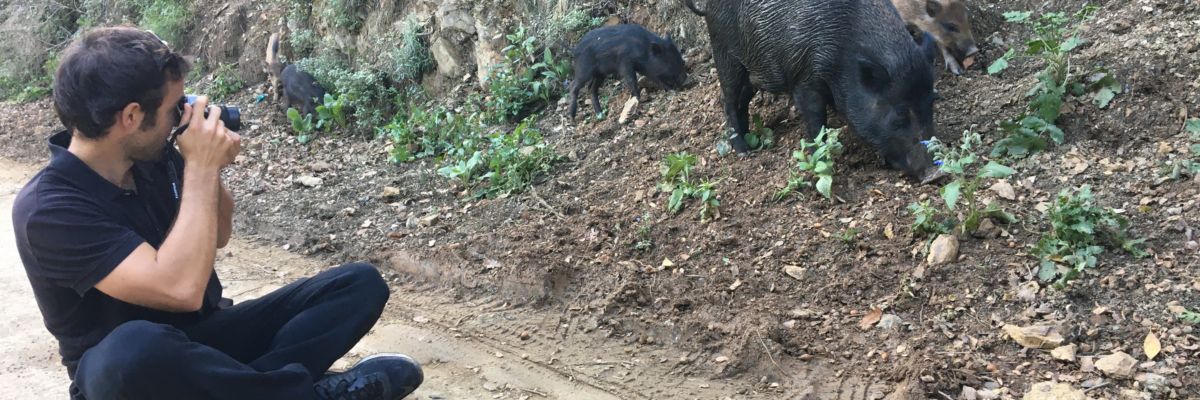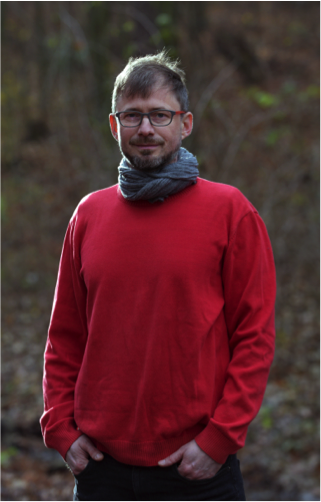
Social anthropologist Luděk Brož has received a prestigious ERC grant
12. 12. 2019
Veterinary medicine, game keeping and hunting, and wild boars have a common intersection point in an international ethnographic research which has received one of the most prestigious research grants: an ERC Consolidator Grant in the amount of 2 million euros. The author of the research is Luděk Brož from the Institute of Ethnography of the Czech Academy of Sciences. In the next five years, he and his team will focus on conflicts caused by a substantial increase of the wild boar population in Europe and by their subsequent endangerment by the African swine fever virus.
The African swine fever virus is currently considered one of the most serious animal diseases of our time. Although it cannot be contracted by humans, in most cases it results in death of the infected animal, either a wild boar, or a domestic pig. This virus is quite resilient and easily spreads by contact with the infected animal, bodies of dead infected animals, or their bodily fluids. An effective vaccine still does not exist, which threatens the worldwide breeds of pigs and can have substantial impacts on economy.
What will the swine fever do to European borders?
The spread of the disease across Europe and Asia started in Georgia in 2007. Today, the ailment is common from China to Poland and is the cause of major geopolitical changes. Last year, Poland considered erecting a fence in the borders with Ukraine and Belorussia, while Denmark is currently completing such a fence along the entire border with Germany. “With regard to biosafety, border fences are built in the middle of the Schengen Area thirty years after the fall of the Iron Curtain,” cautions Luděk Brož.

Luděk Brož
The role of the Trojan horse
In the ERC project, Luděk Brož will be interested in how the endangerment of the boars is reflected in the community of hunters. Across Europe, this community numbers about seven million of mainly amateur hunters and currently redefines its role, defending its social acceptability, often in dialogue with veterinary epidemiology.
According to the author, the project will “open a new empirical and theoretical outlook upon the phenomenon of hunting” because the threat of the African swine fever transformed the wild boar into a kind of Trojan horse which might facilitate spreading of the infection throughout the European continent. In this context, the “competition of the human and the wild boar for territory and resources became the war for the wild boar. The stakes include mass killings of the boars, closed-off areas, and border fences,” explains the 44-year-old scientist.
The incubator of the project was the first run of the two-year programme TANDEM, a part of the CEFRES (Centre français de recherche en sciences sociales based in Prague) Platform, which supports close collaboration of one scientist from the CAS and one scientist from the CNRS (Le Centre national de la recherche scientifique) on an ambitious project. In this case, Luděk Brož collaborated with Virginie Vaté, a CNRS social anthropologist, and their postdocs, financed by the Charles University in Prague, CEFRES, and the Czech Academy of Sciences.
Luděk Brož has studied on the Faculty of Arts of the Charles University and gained his PhD at the Cambridge University.
For three years, he also worked as a postdoc at the Max-Planck Institute for Social Anthropology in Germany. A British publishing house will soon publish his book dealing with how the life of a Siberian village was influenced by an archaeological research and the Baikonur space programme.
Prepared by: Alice Horáčková and Markéta Růžičková, Department of Media Communication of the Head Office of the CAS
Translated by: Milan Pohl
Foto: Linda Osusky
Read also
- A trapped state: The pandemic impact on public attitudes, trust, and behavior
- Aerial archaeology: Tracing the footsteps of our ancestors from the sky
- Archaeologists uncover ancient finds along Prague Ring Road
- Our microbiome largely depends on what we eat, says microbiologist Michal Kraus
- The ABCs of writing: Why did its invention mark a turning point for humankind?
- We learn, remember, forget… What can memory actually do? And can we outsmart it?
- New Center for Electron Microscopy in Brno opens its doors to global science
- The hidden lives of waste: What can we learn from waste workers and pickers?
- A unique lab is hidden right beneath Prague’s Vítkov Hill
- Renewables are a strategic investment in European security, scientists say
The Czech Academy of Sciences (the CAS)
The mission of the CAS
The primary mission of the CAS is to conduct research in a broad spectrum of natural, technical and social sciences as well as humanities. This research aims to advance progress of scientific knowledge at the international level, considering, however, the specific needs of the Czech society and the national culture.
President of the CAS
Prof. Eva Zažímalová has started her second term of office in May 2021. She is a respected scientist, and a Professor of Plant Anatomy and Physiology.
She is also a part of GCSA of the EU.